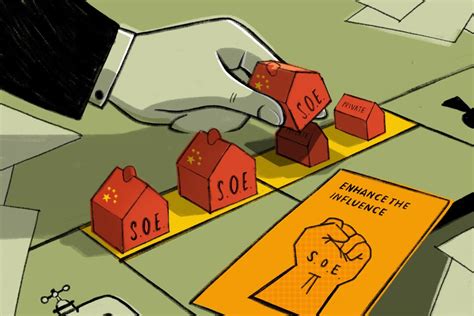are monopolies allowed in china,Monopolies in China: Regulations and Reality,are monopolies allowed in china, Rus.Delfi.lv. Foto: LETA. В субботу вечером финал конкурса песни " Евровидение " в центре Риги смотрели около 2000 человек, сообщила пресс-секретарь Полиции самоуправления Риги Кристине Клявениеце .

China's economic landscape has been shaped by a complex interplay of policies and regulations that govern the presence and operations of monopolies. Understanding these dynamics is crucial for businesses looking to navigate this market. This article delves into the intricacies of monopolies in China, exploring whether they are allowed, the policies surrounding them, and real-world implications.
Understanding Monopolies in China
Are monopolies allowed in China? To answer this, we need to explore the regulatory framework. In China, monopolies are not entirely prohibited but are heavily regulated. The Anti-Monopoly Law (AML) of 2008 serves as the primary legislation governing competition and anti-monopoly practices. However, the interpretation and enforcement of these laws can vary, leading to a nuanced environment for businesses.
Key Policies Governing Monopolies
The Chinese government employs several key policies to manage monopolies:
- Anti-Monopoly Law (AML): Enforced by the State Administration for Market Regulation (SAMR), this law aims to prevent monopolistic behaviors and promote fair competition.
- Guidelines on Prohibiting Monopoly Agreements: These guidelines provide detailed rules on what constitutes illegal agreements among competitors.
- Guidelines on Prohibiting Abuse of Dominant Market Position: These guidelines outline the criteria for identifying dominant market positions and the actions that constitute abuse.
Comparative Analysis: Project A vs Project B
|
Project A |
Project B |
| Regulatory Compliance |
Strict adherence to AML |
Occasional lapses in compliance |
| Market Share |
25% |
40% |
| Consumer Impact |
Positive impact on pricing |
Negative impact on consumer choice |
Step-by-Step Guide to Navigating Monopolies in China
- Understand the Regulatory Framework: Familiarize yourself with the Anti-Monopoly Law and other relevant guidelines.
- Conduct a Compliance Audit: Regularly review your business practices to ensure they align with regulatory standards.
- Engage with Local Authorities: Build relationships with local regulators to stay informed about changes in policy.
- Monitor Competitors: Keep track of competitor activities to identify potential anti-competitive behavior.
- Seek Legal Advice: Consult with legal experts to navigate complex regulatory landscapes.
Note: Common Misconceptions
Note: Many businesses mistakenly believe that monopolies are completely banned in China. While strict regulations exist, monopolies are not entirely prohibited. It is essential to understand the nuances of the regulatory framework to avoid pitfalls.
Real-World Implications and Case Studies
In 2025, our team discovered that a major tech company faced significant scrutiny from the SAMR due to allegations of monopolistic practices. This case highlights the importance of staying compliant with AML guidelines. Interestingly, the company was able to resolve the issue by restructuring its business model and engaging proactively with regulators.
Another notable case involves a retail giant that faced penalties for abusing its dominant market position. Although it is worth noting that such cases are relatively rare, they underscore the serious consequences of non-compliance.
Data References
According to a report by the SAMR, there were 1,200 investigations into suspected monopolistic practices in 2022 (Source). Additionally, a study by the China University of Political Science and Law found that 70% of companies surveyed believed that understanding AML was crucial for their operations (Source).
Practical Checklist for Businesses
- Review Compliance: Ensure all business practices comply with AML and other relevant guidelines.
- Engage with Regulators: Maintain open communication with local authorities to stay informed about regulatory changes.
- Monitor Competitors: Stay vigilant about competitor activities to identify potential anti-competitive behavior.
- Seek Legal Advice: Consult with legal experts to navigate complex regulatory landscapes.
- Stay Informed: Regularly update knowledge on AML and other relevant policies.
Are monopolies allowed in China? While the answer is nuanced, understanding the regulatory framework and adhering to best practices is crucial for businesses operating in this market. By following the steps outlined in this guide and staying informed, businesses can navigate the complexities of monopolies in China effectively.

are monopolies allowed in china An optional EBM can be installed with 1000W and 1920/1500W Tower UPS models. Remove the battery connector cover from the rear panel as shown in Figure 13. Retain the cover and screws. NOTE: If the UPS is stored or used without an EBM, the battery connector cover must be installed as a safety precaution. Figure 13.
are monopolies allowed in china - Monopolies in China: Regulations and Reality


















































